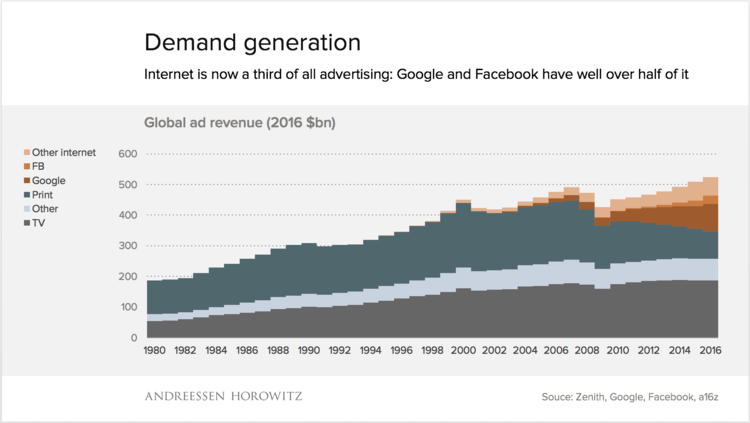Note: At the time of this post’s publication, I was the founder/CTO of Parse.ly, a company that worked closely with major media companies on a real-time analytics platform.
The attention economy is broken.
Brands are spending billions of dollars on a complex digital ad ecosystem to influence consumers, but with often terrible results. Publishers, meanwhile, have never had bigger digital audiences — but they only earn a fraction of the revenue, mainly due to the power of the Google/Facebook adtech dominance.
Spending on Google and Facebook ads exploded between 2010 and 2016, as shown by the orange areas above. Google and Facebook also have about half of all the advertising revenue in the Internet category. It’s very likely that by 2020, that will be closer to 60–70%, with every other Internet publisher on the planet fighting for a shrinking portion of ad dollars.
Consumers — you and me — are the ones footing the bill. We see increasingly slow page load times for publisher pages which are bloated with ad tech vendor code; increasingly invasive ads from brands who are desperate to catch a click; and, a media trend toward outrage, rather than thoughtful debate.
On this last point: it is outrage, not truth, that prevails in an Internet economy built around attention capture and auction, which is how our programmatic digital advertising ecosystem works.
This is because outrage — through a quirk of societal and brain evolution — is more effective at capturing our time. Indeed, as we’ve been learning, outrage decoupled from truth is one of the most engaging forms of content on the web.
Continue reading The Great Reckoning in Digital Attention


